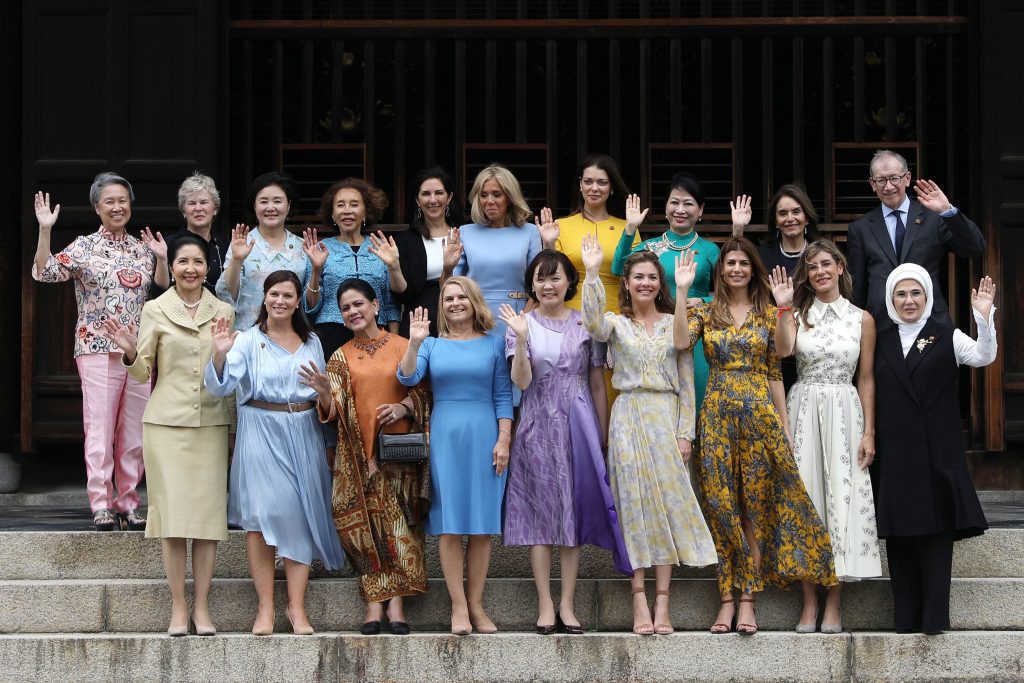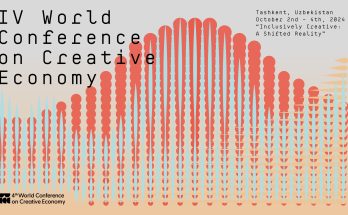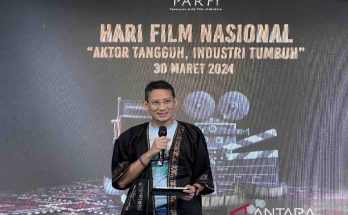By Lakshmi Puri
Prime Minister Modi has identified women-led development as a key priority of India’s G20 presidency. In this big-picture article, Amb. (Retd) Lakshmi Puri offers a slew of suggestions for advancing gender equality and women empowerment within the G20 ambit and argues that by doing so, India can advance one of humanity’s most transformational projects of the 21st century.
As someone associated with the very idea and inclusion of Sustainable Development Goal 5 on “achieving gender equality and the empowerment of all women and girls” and with the launch of the Women20 Engagement Group in 2015 in Turkey, I am proud that PM Modi has identified “women-led development” as a priority theme for India’s G20 presidency. The universe seems to be coming together for India to blaze a trail and make a lasting global contribution to one of humanity’s biggest and most transformational projects of the 21st century.

In 2015, UNWOMEN ensured that Agenda 2030 for Sustainable Development recognised that gender equality must be both a critical enabler and accelerator as well as a prime beneficiary of SDG progress. A dedicated SDG 5 with 9 targets cover following areas:
1) Ending all forms of discrimination and violence against women and harmful practices like child marriage.
2) Ensuring women’s full and effective participation and equal opportunities for leadership at all levels of decision-making in political, economic, and public life.
3) Universal access to sexual and reproductive health and rights.
4) Women’s equal rights to economic resources, access to ownership and control over land and other forms of property, financial services, inheritance, and natural resources.
5) Enhancing the use of enabling technology, in particular ICT to promote women’s empowerment.
6) Recognising and valuing unpaid care and domestic work, through the provision of public services, infrastructure, social protection policies and burden sharing.
7) Adopt policies and enforceable laws to advance gender equality and empowerment of all women and girls at all levels.
In addition, we ensured that gender- responsive targets be included in 11 key SDGs from poverty eradication, health, education, food & nutrition, WASH, Energy, employment, economic growth, inequality to sustainable cities. The entire body of gender equality commitments in Agenda 2030 was the coping stone to what I have called a comprehensive, high standards, UN’s Global Gender Equality Compact – GGEC. It builds on the motherboard of the Convention on the Elimination of the Discrimination against Women, signed by 187 countries Beijing Platform for Action, other UN resolutions, Addis Ababa Action Agenda on Financing for Development et al.
Fortuitously, PM Modi’s vision for a new India is that of achieving SDGs including SDG5. In his $ 10 trillion economy by 2030 ambition for India, women are seen as equal and indispensable actors. With a life cycle continuum approach, the Government of India has tried to ensure that women’s voice and agency is supreme in India’s development aspiration of an ‘Atma Nirbhar Bharat’ or “self-reliant India” not just for her own sake, but in the interest of the entire global community in a post-COVID world. This presents an unprecedented opportunity to decisively advance the “normative of implementation” of the UN’s Global Gender Equality Compact, individually, and collectively by G20 countries and drive global action and achievement.
At the midpoint of SDGs, all UN reports point to the world being off track to achieving gender equality related goals and targets. Daunting historical, structural economic, social, political and mindset- related barriers block progress. The COVID pandemic and now the Russia-Ukraine war has further worsened the women’s economic empowerment challenges.
If India and G20 countries which are global economic and political powerhouses can accelerate the implementation and achievement of the goals of women-led development, it will telescope the achievement of Gender Equality Goals from the current 40-100 years or more to 15 years. The 18th G20 Summit in 2023 can signal that this is a “mission possible”.
The W20 or the Women Engagement group has been the locus of defining and advancing the women’s empowerment agenda of G20 and have done creditable work. I am happy to note that since 2021 a Women’s Conference/Summit of G20 Women’s Affairs Ministers is being held. Maybe it is time to initiate a proper work stream through a Working Group on women’s empowerment as an institutional strengthening and gender-mainstreaming engine.

The G20 process and Summit communique, its 10 finance and economy working groups, some dozen other work streams and 11 others Engagement Groups, the other priority themes like technological transformation, green development & LiFE and accelerated, inclusive and resilient growth, must be gender mainstreamed and women must be equally represented in all panels/mechanisms. It is imperative that the G20’s overarching priority of economic and financial management for global good, including crisis response which was the raison d’etre of G20, must also be gender- responsive. Most importantly, the actionable outcomes and deliverables must target accelerated achievement of gender equality.
10-Point Action Plan
I recommend 10-point Action plan or the ten I’s for G20’s implementation of SDGs and the related Global Gender Equality Compact by the G20 individually, collectively and for driving global action and transformation.
- Inspiration of the UN’s GE0WE global Compact in delivering the global public goods of peace and security, human rights, humanitarian action and sustainable development – economic, social, and environmental
- Indivisibility: Vertical and horizontal of SDG5 and other SDGs in treatment.
iii. Integration: Involving the systematic gender mainstreaming into all key decisions, laws, policies, activities, initiatives for SDG achievement.
- Institutions: Creating, empowering, strengthening, and resourcing dedicated GEWE institutions at all levels-global, G20, regional, national, local, and ensuring transversal institutions are gender responsive.
- Investment: Significantly increased and enhanced financial investment from all sources targeted and mainstreamed, and transformative actions for financing gender equality policies and programs.
- Information: Gender segregated Data Revolution should form the basis of the pyramid of statistics, analysis, and monitoring and 50 GEWE indicators in UN’s Global Indicators framework of SDGs should be backed up.
vii. Innovation: In all areas – socioeconomic and political and putting Science and technology/Digital/Tech 4.0 in the service of GEWE and STEM educated and skilled women and girls.
viii. Implementation: Carrying forward and implementing reformed women’s empowerment laws, policies and programs including Temporary Special Measures to overcome structural barriers.
- Inclusion: Bringing together multi-stakeholder actors-civil society organisations especially women’s movements, faith groups, men and boys and private sector for “reengineering mindsets” and bring about behavioural change through a people’s movement.
- Impact: G20 commitments must make actual impact – systemic and substantive in the empowerment of all women and girls – especially those most marginalised to have voice, participation and leadership in driving SDGs achievement and becoming their prime beneficiaries.
There are close to a dozen women’s empowerment-related outcomes of G20 Summits so far, including the Empower Mechanism. India’s G20 presidency needs to harvest them, build on them and launch new actionable initiatives based on PM Modi’s women-led development projects in India which can act as lighthouses, especially for the Global South.
Potential Deliverables
I would like to suggest some specific deliverables the Delhi Summit could consider launching and strengthening with the “Amrit” of financial infusion and political will coursing through the veins of each initiative.
Transformative Financing Initiatives:
- a) Platform for funding-women led startups and linking with angel investors- inspired by Start Up India.
- b) Facility for funding Women MSMEs to grow – building on WE FI adopted earlier by G20 and PM Modi’s Stand-up India, Mudra etc.
- c) Gender-Responsive budgeting and government procurement commitment.
The corporate Sector should be incentivized to commit to the UN’s Women’s Empowerment Principles. They must hold themselves accountable to gender equality within the organization by recruiting and promoting women to leadership positions, in the marketplace through sourcing from women suppliers and in the community through targeted CSR spending on women’s empowerment projects.
Build on the steps taken at the Bali conference and launch a comprehensive Women’s Edge – Engage in Digital Empowerment Ecosystem for bridging the digital gap through access to public infrastructure, devices, education, and skills.
On Green Economy, LiFE and Climate Action, a G20 advocacy campaign valorising and supporting women’s participation and leadership especially at grassroots/household/community levels would be valuable
Launch a Gender Data Alliance of G20 on systematic collection, analysis, monitoring and evaluation of gender data and policies.
G20 Care Economy Compact for valuing and reducing the burden of care work for women, freeing them up for formal work and generating 1 billion quality jobs of the future in the sunrise sector of the larger care economy ‘that includes child and elderly care, wellness and personal care and healthcare.
Gender equality-related transformations will not happen unless the most powerful countries and economies of the world represented in the G20 show the way. The challenges of bringing about a consensus on India’s ambitious women-led development agenda also cannot be underestimated. I wish the Indian Presidency and PM Modi Bhagirath-like resolve and success in bringing the Ganga of gender equality for nourishing and rejuvenating our One Earth, One Family, One Future that is envisaged in our G20 aspiration.
(Lakshmi Puri is a former IFS officer and Ambassador. She has actively engaged in multilateral diplomacy since 1981. She also served at the United Nations for 15″ years – as Director, International Trade Division, UNCTAD and later as Assistant Secretary General, United Nations and the founding Deputy Executive Director of UNWOMEN. She is a Distinguished Fellow of Indian Association of International Studies (IAIS) and recipient of the prestigious Eleanor Roosevelt Prize for Human Rights.)
Lakshmi PuriAuthor Profile
- India Writes Network (www.indiawrites.org) is an emerging think tank and a media-publishing company focused on international affairs & the India Story. Centre for Global India Insights is the research arm of India Writes Network. To subscribe to India and the World, write to editor@indiawrites.org. A venture of TGII Media Private Limited, a leading media, publishing and consultancy company, IWN has carved a niche for balanced and exhaustive reporting and analysis of international affairs. Eminent personalities, politicians, diplomats, authors, strategy gurus and news-makers have contributed to India Writes Network, as also “India and the World,” a magazine focused on global affairs.
Latest entries
 Business with IndiaOctober 25, 2024Modi’s new mantra for blending India’s Dynamism with Germany’s Precision
Business with IndiaOctober 25, 2024Modi’s new mantra for blending India’s Dynamism with Germany’s Precision China ConnectOctober 23, 2024“Our Diversity and Belief in a Multipolar World Are Our Strengths”: PM Modi at BRICS Summit
China ConnectOctober 23, 2024“Our Diversity and Belief in a Multipolar World Are Our Strengths”: PM Modi at BRICS Summit DiplomacyOctober 23, 2024“BRICS: A Beacon of Hope for Global Unity and Reforms “
DiplomacyOctober 23, 2024“BRICS: A Beacon of Hope for Global Unity and Reforms “ DiplomacyOctober 23, 2024Deepening Ties Amidst Global Turmoil: PM Modi Meets Iranian President at BRICS Summit
DiplomacyOctober 23, 2024Deepening Ties Amidst Global Turmoil: PM Modi Meets Iranian President at BRICS Summit







